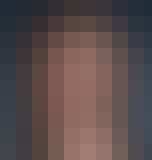Fear and uncertainty about copyright law often plagues educators and sometimes prevents creative teaching. This course is a professional development opportunity designed to provide a basic introduction to US copyright law and to empower teachers and librarians at all grade levels. Course participants will discover that the law is designed to help educators and librarians.
Applying Fair Use, Part 3

Reviews
4.8 (554 ratings)
- 5 stars83.57%
- 4 stars14.07%
- 3 stars1.98%
- 2 stars0.18%
- 1 star0.18%
DR
May 29, 2019
Absolutely great training for librarians and archivists! As a librarian I left the course feeling confident in making decisions and with plenty of tools to address practical problems in my work.
NM
Aug 8, 2020
This was eye opening and a very informative course for things to mind in terms of copyrighted materials and teaching! I loved the course! Thanks so much to the facilitators! AWESOME Indeed!
From the lesson
Understanding and Using Fair Use
Fair Use is one of the most powerful aspects of U.S. copyright law for educators and librarians. In this module, we help students define Fair Use and understand where and in what contexts the law applies. We also address international aspects of copyright.
Taught By

Kevin Smith, M.L.S., J.D.
Former Director, Copyright and Scholarly Communication

Lisa A. Macklin, J.D.,M.L.S.
Director, Scholarly Communications Office

Anne Gilliland, JD, MLS
Scholarly Communications Officer
